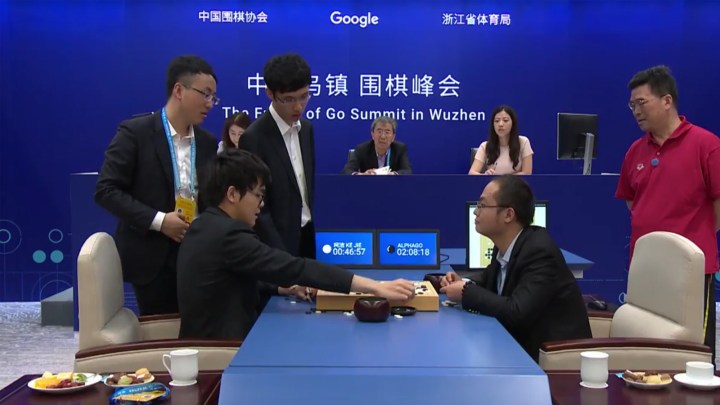
It has been two decades since supercomputers were used to beat the world’s best chess players, which is why over the past few years Go, the far more complex game, has been the subject of much research by AI developers and game players alike. But despite humanity’s greatest efforts, they have been toppled time and again and this latest series has been no different.
A Go prodigy, 19-year-old Ke Jie, put up a tough fight but was ultimately bested 3-0 in the latest series. He even attempted to use AlphaGo’s own strategies against it and came razor close to defeating the Google algorithm on several occasions, but to no avail. DeepMind co-founder Demis Hassabis said that based on AlphaGo’s evaluations of Jie’s moves, he played almost perfectly.
Following this latest win, Hassabis said that AlphaGo would be retired and would no longer be used for competitive play, claiming it had reached its highest level of competition, according to Techspot.
However, that does not mean that the AI will be confined to some dusty corner of a hard drive and forgotten. The research team that created it will now use everything they have learned from the developmental process to create new and advanced algorithms to tackle problems in medicine, energy consumption and the construction of new materials.
“If AI systems prove they are able to unearth significant new knowledge and strategies in these domains too, the breakthroughs could be truly remarkable. We can’t wait to see what comes next,” Hassabis said.
In typical movie-sequel fashion too, the young upstart of AlphaGo will now team up with Jie and the developers, to create a new teaching tool that will show how AlphaGo analyzed certain parts of the game to make its game-winning moves. That will give players all over the world, the chance to see the game as AlphaGo saw it, possibly raising the bar for human play in the future.
The developers of AlphaGo will also be writing a paper on how they prepared AlphaGo’s algorithm to take on such a challenge in the world’s greatest human player. Doing so no doubt required special consideration, as Jie showed himself capable of pushing the AI to the limit. Several times during their series he believed himself ahead, but AlphaGo ultimately achieved victory in each case.
Part of the reason Jie may have been able to play so effectively against AlphaGo is that he learned from playing against it. In his first game against the AI, he used strategies learned from a loss against AlphaGo earlier this year. While it did not help him win, according to Hassabis, it did lead to some exciting gameplay.
While Jie was able to repeatedly push the AI, ArsTechnica points out that it is programmed to aim for victory alone rather than trying to dominate the opposition. However, the feat is still impressive and suggests that while AI may have the advantage in Go play, the best human minds can still give it a run for its money.
Don’t be too concerned about AI taking over in all games now that they have mastered Go, though. While AlphaGo beat not only the best players in the world but a team of five of them in an exhibition match on Friday, it also teamed up with human players to show a new side of the game: AI and human teammates. That could open up all sorts of new ways to play the game, as well as teaching us all how to be better at it.
Updated on 05-29-2017 by Jon Martindale: Added results from game three and news of AlphaGo retirement.



